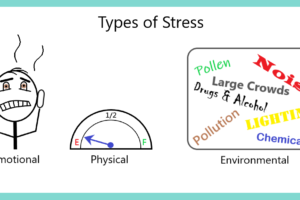
Flower Children Types
Ideally, children in this country are raised in a reasonably healthy environment by parents who are doing the best they can to raise and parent their children. Sadly, there are some children in this country who are raised in horrific trauma-inducing environments by parents who have poor parenting skills.
Not only does the environment matter, but the style of parenting has an equally important influence on how that child goes on to live their adult life. “Flower Children” is a metaphor for parenting. Parents can raise their children as:
- Garden flowers
- Potted plants
- Wild flowers
As adjunct sociology faculty at a local university, I found it fascinating to me to observe the result of flower children parenting on college students. Of course, how people behave as college students isn’t exclusive to how they were parented, but parental influence did play a major role.
Garden Flowers

Children raised as garden flowers are children who are nurtured and encouraged to flourish. Garden flowers are watered when there hasn’t been much rain. The weeds around them are pulled and discarded to leave the best, nutrient-rich soil for the garden flower. As a result, they develop deep roots and stretch to the sun.
Children who are raised as garden flowers are taught important life skills, for example, resilience. They are continually being supported and provided with opportunities for growth. If they fail at something, it is a “soft landing” with someone always there to support them.
Example: Garden Flowers as College Students
Students who are raised as garden flowers and attend college are frequently the students sitting in the back of the room, talking during class, looking at their phones and sending texts. If they are attending college, it is through strong encouragement of their parents.
These will be the students who will ask for exceptions to any class rule. They will ask for extensions in turning in papers, they will miss class because it was a nice spring day and then ask to make up a missed popped quiz. After all, they are used to others making exceptions for them! For them, college should not be anything different than the life they are accustomed to!
Potted Plants

Potted plants are most often grown in pots inside a house or greenhouse in a climate-controlled environment. The amount of space for growth for the roots or the amount of moisture for the roots is determined by the size of its plastic or clay pot. Potted plants are sheltered with little concern for the tornado, a heat wave, or drought.
Children who are raised as potted plants have only known hovering parents or “helicopter parenting”. Because of their sheltered upbringing, potted plant children are naïve to the world. As adults they may have a hard time being self-reliant because all decisions have been made for them.
Example: Potted Plants as College Students
Students who are raised as potted plants and attend college tend to be a very cautious group. They are used to other people making virtually every decision for them. These will be the students who sit in the very front row, taking copious notes because they don’t want to miss anything.
Frequently the potted plant students will place unrealistic expectations on themselves. Reading and following the instructions in the syllabus will not be enough for these students. They will ask multiple additional questions, just to make sure they got everything right.
Wild Flowers

Wild flowers are the colorful wild bluebonnets, lupines or daisies you see flourishing in fields or on the side of the road. They are there because the wind has blown their seed there and because they have been strong enough to put down deep enough roots in the soil for moisture and grown tall enough to reach the sun.
Children raised as wild flowers find resilience through their own trial and error. No one is looking out for the wild flower. No one is going out of their way to make a wild flower feel comfortable.
Example: Wild Flowers as College Students
It is likely they have made it to college with little or no emotional or financial parental support. They have worked hard to make it there on their own and they take the process seriously. They will be the students who are sitting quietly taking notes.
Students who are raised as wild flowers and attend college are probably the easiest to teach. Wild flowers will never ask for extensions in turning in papers. They accept the consequences of turning in a paper late. They will take the credit or the punishment for their actions.
Take Away Point
The concept of raising children as garden flowers is a metaphor. It is a way of thinking about parenting: about how you were raised and about how you raise your own children. Because or, of in spite of, encouragement (or it’s lack) by parents, all three groups attended college. Attending and flourishing at college was probably an easier transition and process for garden flowers, but potted plants and wild flowers can be equally successful.
Information and awareness can help you be a better parent. The concept of flower children may help to explain why you have the philosophy you do about parenting.
No content in this blog is created by AI (artificial intelligence). The information presented is the perspective of the author and material amassed from 40+ years as a clinical social worker.
Thank you so much for reading this blog. If you enjoyed the content, please check out other blogs at:
https://relationshipsrelearned.com/staging/9213/1/my-blog/
https://rvingnomads.com/blog/
You can now view my books that are available on my Amazon Authors Page.
To be notified of future posts, please enter your email address and click on the Subscribe button.








